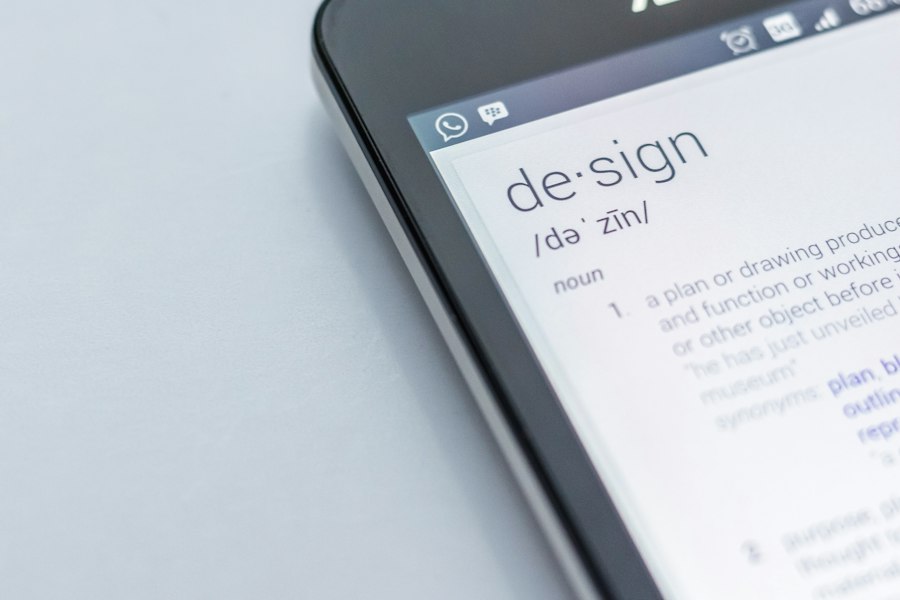Unpacking Cognition: Understanding the Complexities of the Human Mind

Cognition refers to the mental processes and activities related to acquiring, processing, storing, and using information. It involves various aspects such as perception, attention, memory, language, decision making, problem solving, emotions, and developmental changes. Studying cognition is important because it helps us understand how the mind works and how we interact with the world around us. It provides insights into human behavior, learning, and problem-solving abilities.
Understanding cognition is crucial for various fields such as psychology, neuroscience, education, and artificial intelligence. By studying cognition, researchers can gain insights into how people think, learn, and make decisions. This knowledge can be applied to improve educational practices, develop effective therapies for cognitive disorders, enhance human-computer interactions, and design intelligent systems.
Key Takeaways
- Cognition is the mental process of acquiring knowledge and understanding through thought, experience, and the senses.
- Perception plays a crucial role in cognition as it helps us interpret and make sense of the world around us.
- Attention and memory are essential for processing and storing information in our brain.
- Language and communication are complex processes that involve both verbal and nonverbal cues.
- Decision making and problem solving are important cognitive skills that help us navigate daily life.
The Role of Perception in Cognition: How We Interpret the World Around Us
Perception refers to the process of organizing and interpreting sensory information from our environment. It involves the brain’s ability to make sense of the stimuli received through our senses such as sight, hearing, touch, taste, and smell. Perception plays a crucial role in cognition as it shapes our understanding of the world around us.
Perception influences cognition by providing the raw data that our brain processes and interprets. For example, when we see an object, our brain receives visual information that is then processed to recognize the object’s shape, color, size, and other features. This perception of the object then influences our cognitive processes such as attention, memory, and decision making.
Examples of perception influencing cognition can be seen in various situations. For instance, when we see a red traffic light while driving, our perception of the color signals us to stop. This perception then triggers cognitive processes such as attention to focus on the traffic light and memory to recall the appropriate response (stopping). Similarly, when we hear a loud noise, our perception of the sound can trigger a cognitive response such as fear or alertness.
Attention and Memory: How Our Brain Processes and Stores Information
Attention refers to the cognitive process of selectively focusing on certain aspects of our environment while ignoring others. It allows us to concentrate on specific stimuli or tasks and filter out distractions. Memory, on the other hand, involves the encoding, storage, and retrieval of information.
Attention and memory work together in cognition. Attention helps us direct our focus to relevant information, while memory allows us to retain and retrieve that information when needed. For example, when studying for an exam, attention helps us concentrate on the material we are reading, while memory allows us to store and recall that information during the exam.
The importance of attention and memory in cognition cannot be overstated. Without attention, we would be overwhelmed by the vast amount of sensory information bombarding our senses. Without memory, we would not be able to retain and recall information necessary for learning, problem-solving, decision making, and other cognitive processes.
Language and Communication: The Complexities of Human Speech and Understanding
| Metrics | Values |
|---|---|
| Number of languages spoken worldwide | 7,117 |
| Number of phonemes in English language | 44 |
| Number of words in English language | 171,476 |
| Number of languages endangered | 2,500 |
| Percentage of communication that is nonverbal | 93% |
| Number of languages with sign language | 137 |
| Number of people worldwide with hearing loss | 466 million |
| Number of people worldwide with speech disorders | 70 million |
Language is a complex system of communication that involves the use of words, grammar, syntax, and semantics to convey meaning. Communication refers to the exchange of information between individuals using language or other forms of expression such as gestures, facial expressions, and body language.
Language and communication play a crucial role in cognition as they enable us to express our thoughts, understand others, and engage in social interactions. They provide a framework for organizing and conveying information, which in turn influences our cognitive processes.
For example, when we read a book or listen to a lecture, language helps us understand and process the information being presented. It allows us to make connections between concepts, form mental representations, and engage in higher-order thinking. Similarly, when we engage in a conversation with others, language facilitates the exchange of ideas, opinions, and emotions, which can influence our cognitive processes such as decision making and problem solving.
Decision Making and Problem Solving: How We Make Choices and Solve Problems
Decision making refers to the cognitive process of selecting a course of action from among several alternatives. Problem solving, on the other hand, involves finding solutions to complex or unfamiliar situations. Both decision making and problem solving are fundamental aspects of cognition.
Decision making and problem solving affect cognition by influencing our thought processes, reasoning abilities, and behavior. They require us to gather information, evaluate options, consider consequences, and make choices based on our goals and values.
Examples of decision making and problem solving influencing cognition can be seen in various contexts. For instance, when deciding which college to attend, we consider factors such as location, reputation, cost, and program offerings. This decision-making process involves weighing the pros and cons of each option and considering our long-term goals. Similarly, when faced with a complex problem at work, we engage in problem-solving strategies such as breaking down the problem into smaller parts, generating possible solutions, and evaluating their feasibility.
Emotions and Cognition: The Relationship Between Thoughts and Feelings

Emotions refer to subjective experiences characterized by feelings such as joy, sadness, anger, fear, or surprise. Cognition involves mental processes such as perception, attention, memory, language, decision making, and problem solving. Emotions and cognition are closely intertwined and influence each other.
Emotions can influence cognition by shaping our thoughts, perceptions, and decision-making processes. For example, when we are in a positive mood, we tend to have more optimistic thoughts and perceive the world in a positive light. This positive emotional state can enhance our cognitive abilities such as creativity, problem-solving skills, and memory.
On the other hand, negative emotions such as fear or anxiety can impair cognitive functioning. When we are stressed or anxious, our attention becomes narrowed, and our ability to concentrate and think clearly may be compromised. This can affect our decision-making abilities and problem-solving skills.
Developmental Changes in Cognition: How Our Thinking Evolves Over Time
Developmental changes in cognition refer to the changes that occur in our thinking abilities as we grow and mature. From infancy to adulthood, our cognitive processes undergo significant transformations, influenced by factors such as genetics, environment, and experiences.
Cognition changes over time as we acquire new knowledge, skills, and experiences. For example, in early childhood, our cognitive abilities are focused on sensorimotor exploration and basic problem-solving. As we enter adolescence, our thinking becomes more abstract and hypothetical, allowing us to engage in complex reasoning and decision making. In adulthood, our cognitive abilities continue to develop, but may also be influenced by factors such as aging or cognitive decline.
Examples of developmental changes in cognition can be seen in various stages of life. For instance, infants gradually develop object permanence, the understanding that objects continue to exist even when they are out of sight. This cognitive milestone is a crucial step in their understanding of the world. Similarly, as children enter school, their cognitive abilities expand to include reading, writing, mathematical reasoning, and critical thinking skills.
Cognitive Disorders: Understanding the Causes and Effects of Cognitive Impairment
Cognitive disorders refer to conditions that affect cognitive functioning such as memory, attention, language, perception, or problem solving. These disorders can have various causes including genetic factors, brain injuries or diseases, substance abuse, or mental health conditions.
Cognitive impairment can have significant effects on an individual’s daily functioning and quality of life. It can impact their ability to learn, work, communicate, and engage in social interactions. Common examples of cognitive disorders include Alzheimer’s disease, dementia, attention deficit hyperactivity disorder (ADHD), autism spectrum disorder (ASD), and traumatic brain injury (TBI).
Cognitive disorders can be diagnosed through various assessments and evaluations conducted by healthcare professionals such as psychologists, neurologists, or psychiatrists. Treatment options for cognitive disorders may include medication, therapy, rehabilitation, or lifestyle changes.
The Future of Cognitive Science: Advancements and Implications for Society
Cognitive science is a rapidly evolving field that continues to advance our understanding of cognition and its underlying mechanisms. With advancements in technology, neuroscience, and artificial intelligence, the future of cognitive science holds great promise for further discoveries and applications.
Advancements in cognitive science can lead to a better understanding of human cognition and behavior. This knowledge can be applied to various domains such as education, healthcare, technology, and business. For example, in education, cognitive science can inform instructional practices and curriculum design to enhance learning outcomes. In healthcare, it can contribute to the development of effective therapies for cognitive disorders or mental health conditions. In technology, it can improve human-computer interactions and the design of intelligent systems.
The implications of cognitive science for society are vast. By understanding how people think, learn, and make decisions, we can develop interventions and strategies to improve cognitive functioning and overall well-being. This knowledge can also help us address societal challenges such as misinformation, cognitive biases, or decision-making errors.
Applications of Cognitive Science: How We Can Use Our Understanding of Cognition to Improve Our Lives
The understanding of cognition gained through cognitive science can be applied in various ways to improve our lives. Here are some examples:
1. Education: By applying cognitive science principles in teaching practices, educators can enhance learning outcomes. Strategies such as spaced repetition, retrieval practice, and active learning have been shown to improve retention and understanding of information.
2. Mental Health: Cognitive-behavioral therapy (CBT) is an evidence-based approach that helps individuals identify and change negative thought patterns or behaviors. It is effective in treating various mental health conditions such as anxiety, depression, or post-traumatic stress disorder (PTSD).
3. Technology: Cognitive science can inform the design of user-friendly interfaces, intelligent systems, and virtual reality experiences. By understanding how people perceive, process, and interact with technology, we can create more intuitive and engaging user experiences.
4. Aging and Dementia: Cognitive training programs and interventions can help older adults maintain cognitive functioning and delay the onset of cognitive decline or dementia. These programs focus on activities that challenge memory, attention, problem-solving, and other cognitive abilities.
5. Decision Making: By understanding the cognitive biases and heuristics that influence decision making, individuals can make more informed and rational choices. This knowledge can be applied in personal finance, business, or policy-making.
Studying cognition is crucial for understanding how the mind works and how we interact with the world around us. It provides insights into human behavior, learning, problem-solving abilities, and decision making. Perception, attention, memory, language, communication, emotions, developmental changes, cognitive disorders, and the future of cognitive science are all important aspects of cognition that shape our understanding of the mind.
The future of cognitive science holds great promise for advancements in our understanding of cognition and its applications in various domains such as education, healthcare, technology, and business. By applying our knowledge of cognition, we can improve educational practices, develop effective therapies for cognitive disorders, enhance human-computer interactions, and design intelligent systems. Ultimately, a deeper understanding of cognition can lead to improvements in our lives and society as a whole.